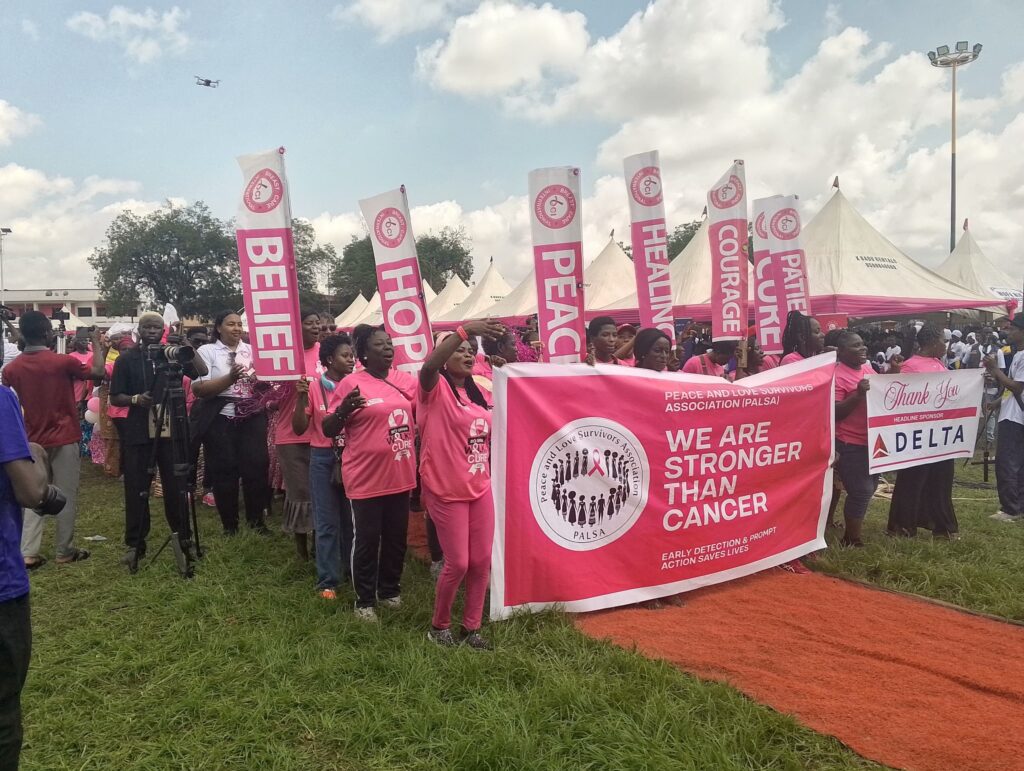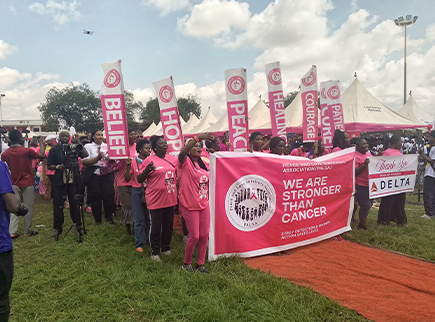More than 2,300 people in Ghana die each year from breast cancer-related complications, Dr. Mrs. Beatrice Wiafe Addai, Chief Executive Officer of Breast Care International (BCI), has disclosed.
She said the high mortality rate was largely due to late detection, which made treatment difficult and reduced survival chances.
According to Dr. Wiafe Addai, the National Breast Cancer Foundation projects that by the end of 2025, about 316,950 women and 2,800 men worldwide would be diagnosed with invasive breast cancer, with an additional 59,080 new cases of non-invasive breast cancer expected.
Addressing participants at the 2025 “Walk for the Cure” campaign in Kumasi, she emphasized the need for concerted efforts to raise public awareness about breast cancer prevention and the importance of early detection.
This year’s walk was held under the theme, “Every Story is Unique, Every Journey Matters.”

Each year, October is dedicated to promoting breast cancer awareness, honoring millions of people affected by the disease, and reaffirming the global commitment to equitable access to care and improved survival outcomes.
Dr. Wiafe Addai explained that the initiative sought to highlight the importance of health promotion, early diagnosis, and comprehensive treatment, while strengthening partnerships among stakeholders to maximize impact.
She added that the campaign also advocated for equitable access to quality care through the adoption and implementation of BCI’s strategic targets.
Dr. Wiafe Addai stressed that breast cancer had evolved beyond a public health issue into a developmental challenge, adversely affecting the Ghanaian economy since many women in the workforce were diagnosed with the disease.
She said the main objectives of the campaign were to increase public awareness, encourage behavioral change for early detection, advocate for improved access to care, and celebrate survivors.
The BCI CEO also called for breast cancer education to become part of daily conversations, noting that while the disease could not be completely prevented due to unclear causes, certain risk factors such as the use of skin-lightening agents, hair relaxers, smoking (particularly shisha), and excessive alcohol consumption needed stricter control.
She urged women to make clinical breast examinations a regular practice to help detect abnormalities early and seek prompt treatment.
Dr. Wiafe Addai also appealed to the public to dismiss the myth that breast cancer was caused by witchcraft and to avoid using unverified herbal concoctions as cures.
Ms. Benedicta Agbono, a seven-year breast cancer survivor, shared her experience, saying early detection had saved her life, and encouraged other women to follow suit.
The health walk brought together students from various Senior High Schools in the Kumasi Metropolis, corporate organizations, and members of the general public.

